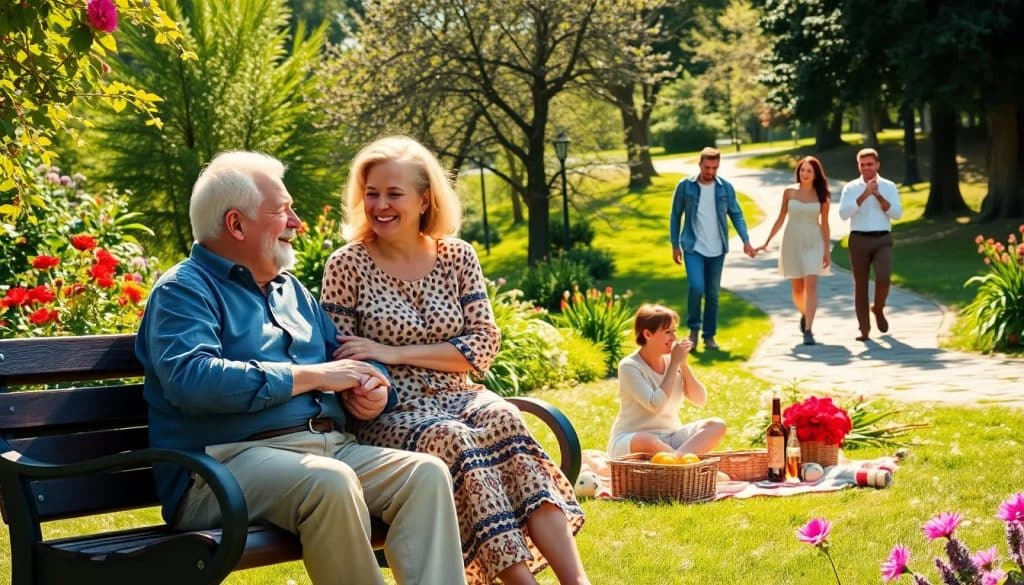The relationship between aging and sexuality is complex and often misunderstood. While many people associate aging with a decline in sexual activity and satisfaction, research shows that many older adults remain sexually active and fulfilled. Understanding how sexuality changes with age is essential for maintaining healthy relationships throughout life.
This article explores the various factors influencing sexual health as we age, from physical changes to psychological and cultural influences. Additionally, we will provide practical advice on enhancing sexual intimacy and navigating any changes that arise.

How does sexuality change with aging?
As individuals age, their bodies and experiences evolve, leading to significant changes in sexual function and desire. Many older adults face physiological changes that impact their libido and sexual experiences. For instance, women may experience hormonal shifts due to menopause, while men might encounter changes related to andropause.
The stereotype that sexual desire diminishes completely with age is misleading. In fact, many older adults report a desire for sexual intimacy well into their later years. Factors such as health, relationships, and psychological well-being play a crucial role in determining sexual activity.
It is vital to recognize that these changes can affect anyone, regardless of age. Acknowledging and accepting the natural evolution of sexual health can lead to healthier attitudes and enhanced relationships.
What are the common physical changes that affect sexuality?
Physical changes as one ages can significantly influence sexual function. Key factors include:
- Hormonal changes: Women experience menopause, leading to reduced estrogen levels, which can affect vaginal lubrication and elasticity. Men may face declining testosterone levels, influencing libido and erection quality.
- Chronic health conditions: Conditions like diabetes, heart disease, and arthritis can impede sexual function, causing discomfort or reducing desire.
- Medications: Some medications for chronic conditions can have side effects that impact sexual health, such as diminished libido or erectile dysfunction.
Understanding these physical changes is the first step toward improving one’s sexual health. Addressing them proactively can help maintain intimacy and connection.
How can you improve sexual health as you age?
Improving sexual health in older age requires a holistic approach. Here are some practical tips:
- Communicate openly: Discuss your needs and concerns with your partner. Open communication is vital for navigating changes in your sexual relationship.
- Stay active: Regular physical activity enhances overall health and can improve sexual function. Activities like walking, swimming, or yoga can be beneficial.
- Consult a healthcare professional: Seeking advice from a doctor about sexual health concerns is crucial. They can provide tailored recommendations and potential treatments.
By focusing on these strategies, older adults can foster a fulfilling and satisfying sex life.
What role do psychological factors play in sexuality?
Psychological well-being plays a significant role in sexual health, especially as one ages. Attitudes toward sex, self-image, and emotional health can all impact sexual desire and satisfaction.
Many individuals may experience anxiety or depression related to aging, which can dampen libido. Additionally, societal attitudes towards aging and sexuality can create stigma, making individuals feel less confident in expressing their sexual needs.
Addressing psychological factors may involve seeking therapy or counseling, which can help individuals work through feelings of inadequacy or anxiety related to sexuality. Furthermore, engaging with supportive communities can enhance feelings of acceptance and confidence.
How can communication improve sexual relationships in older age?
Effective communication can significantly enhance sexual relationships among older adults. By discussing desires, boundaries, and challenges openly, couples can foster intimacy and understanding.
Here are some ways to improve communication:
- Set aside time for conversation: Make time to discuss sexual health and intimacy without distractions.
- Be honest: Share your feelings about sexual experiences, desires, and any challenges you may face.
- Be patient: Understand that discussing sensitive topics can be uncomfortable. Take your time to approach these conversations gently.
When couples prioritize open communication, they can better navigate the complexities of aging and maintain a satisfying sexual relationship.
What medical interventions can help with age-related sexual issues?
Several medical interventions can assist older adults experiencing sexual dysfunction. These include:
- Hormone therapy: For women, hormone replacement therapy can alleviate symptoms of menopause, improving sexual health. For men, testosterone therapy may help address low libido.
- Medications: There are various medications available, such as phosphodiesterase inhibitors for erectile dysfunction, which can enhance sexual performance.
- Therapy and counseling: Professional counseling can address underlying psychological issues affecting sexual health, providing strategies to improve intimacy.
Consulting a healthcare professional is essential for anyone experiencing sexual difficulties. They can provide tailored advice and treatment options suited to individual needs.
Questions related to sexuality and aging
How does sexuality change with aging?
As we age, sexuality often shifts due to physical, psychological, and social factors. Many individuals experience hormonal changes that can influence libido and sexual function. However, aging does not necessarily mean a decline in sexual desire. Many older adults maintain a desire for sexual intimacy and find new ways to connect with their partners.
How can I regain my sexuality?
Regaining sexuality may involve several steps. First, addressing any underlying health issues or hormonal imbalances is crucial. Engaging in regular exercise and maintaining a healthy diet can boost overall well-being and improve sexual function. Additionally, discussing concerns openly with a partner and seeking professional help can also facilitate a better understanding of one’s sexual health.
At what age does sexuality end?
There is no specific age at which sexuality ends. Many people continue to engage in sexual relationships well into their 70s, 80s, and beyond. The desire for intimacy can persist, but factors like health and psychological well-being can influence sexual activity. Emphasizing communication and understanding can help maintain a fulfilling sexual life.
Can a 90 year old man be sexually active?
Yes, many 90-year-old men can and do remain sexually active. While physical health may affect sexual function, numerous factors contribute to the ability to engage in sexual activity, including emotional intimacy and mental health. With the right support and understanding, older adults can continue to enjoy meaningful sexual experiences.










